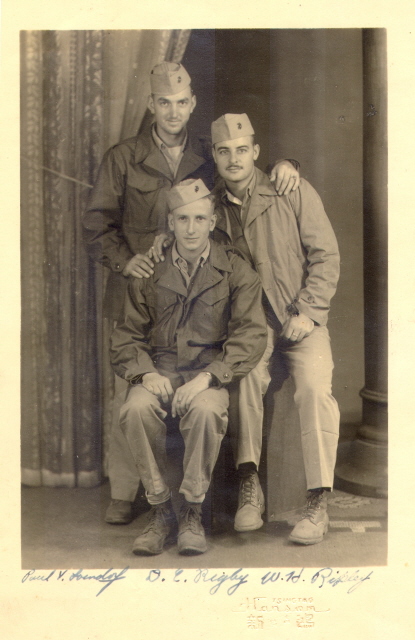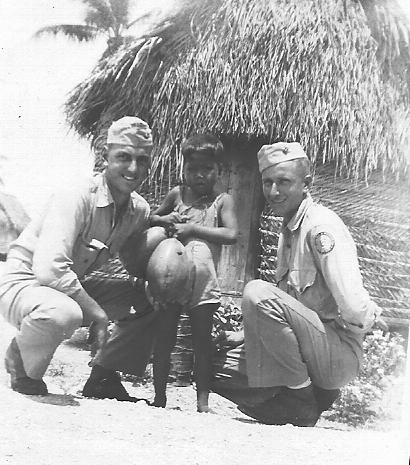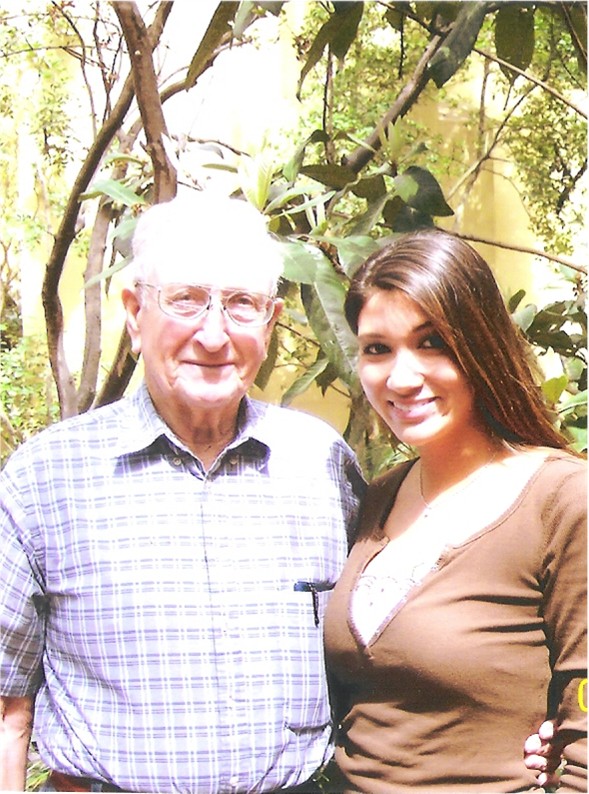D.C. Rigby


What was life like before you joined the Marines?
Well I was raised during the Depression years after the crash of the stock market in 1929.
There was very little money to have and very few jobs. The jobs that they had didn’t pay much money.
People were wandering all over the country looking for work. And there would be kids coming to school and
stay a few days and then move on to somewhere else. It was real bad times.
Were you really excited about joining the Marines?
Well, yes. Excited and apprehensive both. I knew it would be a change and something
new and different, so it was exciting from that standpoint.

When you were attending telephone school, what did you learn and did you enjoy your
training?
Yes, I enjoyed it. We learned the principle of the telephone. How the
speaker/microphone picks up your voice, transmits it to electricity, the other
end of electricity activates a diaphragm that produces a voice on the other end.
It was really interesting studying that. Then we learned; we learned to climb poles
and also string wire off the ground were we wouldn’t get tangled up in trucks and
tractors and so forth.

What was the scariest event or moment that happened during your time overseas?
Oh, there was many of them. I guess when I was helping carrying a friend out
that had been wounded. They shot again and the bullet passed under my arm, killed
the wounded Marine I was carrying. That was pretty scary.

Describe all of the assault landings you did.
Our first assault landing was in the Marshall Islands in Eniwetok Atoll.
There was three islands there in this group and we landed on the first one and
weren’t really needed so we went back aboard ship that night. Before you land,
the Navy would shell, and the airplanes would bomb the island, so it was a racket,
and it was noisy and scary too, because you never knew what was going to happen
the next minute.

Were there times when you had to go without food or sleep?
Well, somewhat. There was usually something to eat. We carried a
chocolate bar or something in our pack, and we could usually find something, but
it wasn’t the best. Sometimes it was a can of beanie weenies, and we'd eat them cold. (Bitter face)
It wasn’t the best but we survived on it. We didn’t get a good, hot meal from the
time we landed in Okinawa on April the first until we left there on July the 21st, 1944.
Tell me about the Sixth Marine Division Association.
It is made up of men who were in the Sixth Marine Division.
It started with a group of friends who would meet and have lunch together and talk
about old times and decided to see how many we can get in. So they started expanding it.
It was going on for several years before I found out about it. I hosted the reunion in
San Antonio and it was the biggest one we’ve ever had and I don’t think we’ve had one that
big ever since. We visit and just have fun and do things. We usually have a memorial
service for members who have passed away during the year.
What did you do with you G.I. bill?
I bought a house and then I took some education courses, so that’s about all
I used it for.
All in all was it a good experience and are you glad you went through all of it?
I am glad I could do my part in a war like that. The Japanese had to be stopped.
I wanted to make the best of it and I’m glad I did my part.
Is there anything else you would like to add?
Well, yes. The operation at Guam was one of the ones that I was really proud of.
The people there were taken prisoners. We landed there July 21, 1944. They had been
there for about two and a half years under Japanese rule. If any of the natives there
refused to cooperate, they would just kill them. When it came time for us to land there,
airplanes were beginning to fly over, they’d have them working in the fields, and if
one of them looked up to see what the airplane was, the guards just shot them because
they were not supposed to look up at anything. They were just supposed to have their
head down working. I met one lady over there, and she refused to work with the Japs,
she and two other girls. They took them out to where a bomb crater was. They would
stand on the edge, and they took a sword, made them bend over, and on two of the girls,
the chopped their heads completely off. The girl that I met, they didn’t get a good lick
on her but it knocked her out and she fell into the shell hole anyway. They thought she was
dead, but she crawled out and got into the jungle. She met a young man there, a Guamanian.
They took care of each others wounds until they met up with some American troops. They
got them to the hospital. These were American people, and to liberate them was something
I was really proud of.

Oral History is an effective way to learn about the past to a certain extent. I already knew a lot about my grandfather's ventures in the war, but this dug into his story further. I would actually like to have read up on the war in a normal textbook to understand a bit more, because the side of the story I got was only a small part of the war.

http://sixthmarinedivision.com/insignia.html. SThis is what it basically means to be in the Sixth Marine Division.
http://encarta.msn.com/map_701512431/Micronesia_Federated_States_of.html. This is a map of most of the islands the Sixth Marine Division was in.
Cass, Bevan G.; History of the Sixth Marine Division, Washington,Infantry Journal Press, 1948. History of the Sixth Marine Division on Okinawa and the operations of its organic units during their campaigns throughout Melanesia, Micronesia, and the Orient in World War Two.